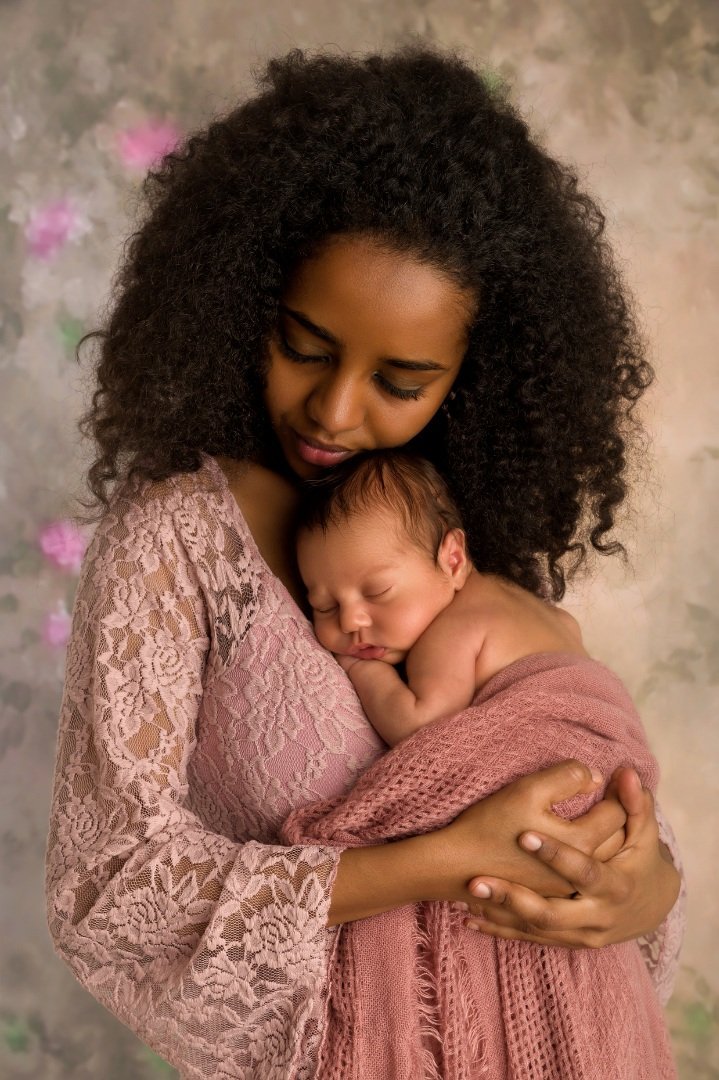What causes age-related infertility?
Some of us are in a race.
A race against time and age. The time between puberty and menopause seems like it should be enough to experience the joy of motherhood. But for some women, their time is being cut short by accelerated fertility aging.
Environmental factors like exercise, sleep, nutrition, oxidative stress, and endocrine disruptors are already established as components that affect fertility. But really, it’s all in the DNA, baby! Or, more specifically, the ends of the DNA.
Let me explain…
DNA is the code for your unique make up; it determines anything as simple as your eye color or height to how well you handle stress and your fertility. DNA is passed on from cell to cell as they split and clone themselves to keep you functioning and thriving as old cells die. The system isn’t perfect though. Each time a cell divides it loses a few letters of the code. The more this goes on, we begin to show signs of aging as we get older as cell division is a perpetual process.
Thankfully, we have telomeres! These are the repeated letters of the code that are not part of the readable, functioning code. Their sole purpose is to “cap” the end of the readable DNA to protect it from being lost and damaged. Make sense? There is also telomerase, which is the enzyme responsible for maintaining the length of the telomere ends by making sure it shrinks at a reasonable rate as we age to keep the good DNA safe. Between these two, DNA is maintained at a healthy length and functions as our cells divide for healthy aging. Eventually, though, the telomeres will get shorter, all part of the natural aging process.
What does this have to do with fertility…
Scientists have figured out that there is a difference between biological age and chronological age. That is because telomere length determines your biological age and the shorter your telomere length the “older” you are biologically. For some women, the length of their telomeres is more appropriate for someone much older which affects their fertility, causing age-related infertility.
In fact, some research has shown that women who undergo IVF tend to have shorter telomere length than women who don’t seek IVF, showing they are biologically older, closer to a woman of menopause age, for example. There is even evidence that telomere length in egg follicles, fallopian, tubes, the endometrium of the uterus, and cells of the immune system, vary in women with fertility challenges. Women with PCOS and endometriosis for example have varying telomere lengths.
However, desired telomere length varies depending on the area of the body and the stage of your menstrual cycle. It is possible to have telomeres that are too long. For example, during the second half of your cycle, your endometrium should change to welcome and accept a fertilized egg and let it burrow into the uterine wall. If the cells are “fixed” and unable to degrade and die, caused by overactive telomerase or too long telomere, the cells of the wall won’t give way for the fertilized egg, and implantation can’t occur. It’s also interesting that women who become pregnant later in life have a longer lifespan than women who start their families earlier. The level of estradiol, a powerful antioxidant, goes up significantly during pregnancy and provides when with protection from excessive telomere degradation. Perhaps it is because women are more prone to degradation at a later age and benefit the most from preventing telomere shortening during this time.
Some good news…
But it’s not all doom and gloom. Nutrition and other lifestyle factors are ways to support telomerase and the proper telomere length. Antioxidants are crucial in protecting your DNA from damage. Antioxidants are crucial to helping support telomeres and telomerase activity. Found in the colorful rainbow of fruits and vegetables, antioxidants protect you from deterioration and damage caused by a specific kind of stress, oxidative stress, caused by poor lifestyle habits. Also, the herb Astragalus has been shown to support telomerase activity, having a synergistic effect when combined with nutritious eating habits.
Yes, a reduction in fertility as you age is a natural part of aging, but it is increasingly apparent that the infertility rates in the last few decades are attributed to added internal stress on our bodies from external factors. Some factors you can’t change, but nutrition and your daily habits are certainly in your hands.
Take charge of your fertility. Time may be running out but it’s never too late to make magic happen.
XO Ericka
Reference:
Vasilopoulos, E., Fragkiadaki, P., Kalliora, C., Fragou, D., Docea, A. O., Vakonaki, E., Tsoukalas, D., Calina, D., Buga, A. M., Georgiadis, G., Mamoulakis, C., Makrigiannakis, A., Spandidos, D. A., & Tsatsakis, A. (2019). The association of female and male infertility with telomere length (Review). International journal of molecular medicine, 44(2), 375–389. https://doi.org/10.3892/ijmm.2019.4225



